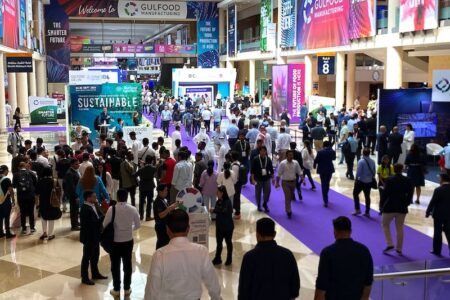US almond processing firm Harris Woolf reports key gains from Bühler sorters

US-based almond processor Harris Woolf has reported key production gains from installing five Bühler SORTEX FB2 optical sorting lines, writes Neill Barston.
According to the California-founded global business, which works with a wide range of industry partners including manufacturers of health-bars and snacks-based businesses, the move has transformed its operations in streamlining its entire production process.
The company noted that previously, a key batch of 70m lbs of almonds which once took 8-10 months to process, can now be handled in a period of 5-6 months. The huller processor has also reportedly been able to increase its cleaning and sizing throughput from 12,000lbs. to 30,000lbs. per hour, performing all of its cleaning on just one pass.
This pre-COVID investment put Harris Woolf in a strong position when the pandemic struck, enabling staff to adhere to social distancing regulations whilst the company continued full operation of its packing line.
Roughly halfway between Los Angeles and San Francisco lies Coalinga, a city in Fresno County on the western edge of the San Joaquin Valley in central California. Just 17.000 people live in Coalinga, but for 30 years it has also been home to the almond processing plant of Harris Woolf, US almond processor and the world’s premier independent wholesale almond product producer.
“Three decades ago, the Harris and the Woolf farming families joined forces to set up a huller and shelling business. Later they began processing, packaging and shipping almond products,” explains Harris Woolf Coalinga Plant Manager, Tom Carter.
Harris Woolf is unique for one key reason. Traditionally, hullers are known for taking almonds from the ground, removing the shell and hull to leave the kernel, while processors are responsible for cleaning the kernels and preparing them for shipment to end-users. Harris Woolf however, covers all bases – it’s a rare huller-processor.
Carter explains: “We grow and process our own almonds and also process them for other growers. We ship in-shell almonds and kernels to the US, Europe, Asia, the Middle East and elsewhere. Our almond kernels are processed throughout the year at Coalinga, while our in-shell almonds are more of a seasonal endeavour.”
“Our average defects are now 0.02% foreign material and 0.62% serious damage, which is roughly a 30% improvement over previous sorters we’ve used. This cleaner material has allowed us to increase our packing line production by 40%,” Carter mentions.
Intake, sorting and sizing takes place on Harris Woolf’s high-speed SORTEX line which has been delivering products ready for export since 2019.

Insect damage, foreign material, and other defects must be removed during the cleaning stage before the almonds reach the packing line. After hulling, the kernels (i.e. natural almonds) are forwarded to the processing stage, where the multistage, multi-pass systems of the four FB2 machines comes into play, through which 30.000lbs/15 tons of almonds pass each hour. A fifth SORTEX FB2 is then employed to clean up any reject material.
Harris Woolf also employs a standalone SORTEX FB2 for preparing the in-shell almonds for export. This machine ensures products are “pack ready” in one pass. “In one process we can clean our almonds and then they’re sized and packaged. A process that used to have multiple cleaning steps now has just one, which saves a lot of time and effort,” Carter states.

“We’ve built up a great relationship with the local Bühler team based in Stockton [east of San Francisco] during our various training sessions with them. This is important because frankly, equipment is only as good as the support you receive on the ground. So, for us, with Bühler it’s been a win-win situation.”



